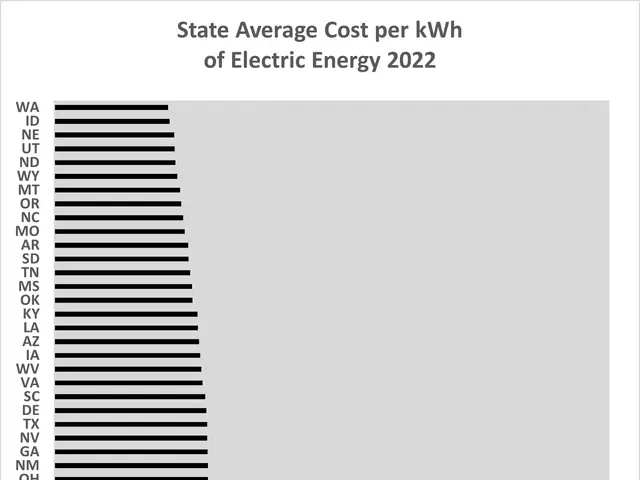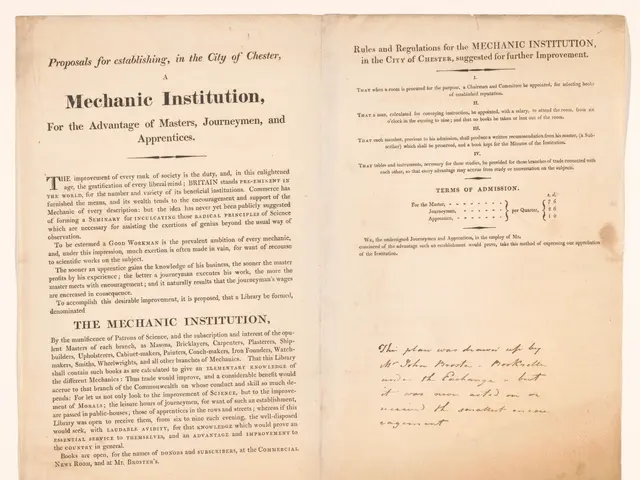Palm oil: What's the deal - Is it harmful to health or beneficial?
Stepping into the world of palm oil, let's clear up the confusion about its impact on our health. This tropical oil, derived from the fruit of the oil palm tree, has been under scrutiny for its fat content and potential contribution to heart problems. But, how true are these claims? Let's dig a little deeper.
First off, it's essential to understand that palm oil comes in two main variations: red and white. The refining process turns white palm oil paler and strips it of micronutrients like beta carotenes, vitamin E, and plant sterols, making red palm oil the healthier choice.
Now, onto the big question-is palm oil bad for our health?
The scientific community has been curious about the potential health risks associated with consuming palm oil, particularly its effect on cholesterol levels and cardiovascular disease (CVD). Interestingly, research suggests that palm oil might have some benefits.
In a 2021 review, it was found that palmitic acid from palm oil and other vegetable sources had a less adverse impact on blood cholesterol levels and LDL ("bad") cholesterol than palmitic acid from animal sources. Moreover, a chemical compound in palm oil called tocotrienols was found to lower blood cholesterol levels by 7% to 38%.
However, it's not all sunshine and rainbows. Research published in 2020 acknowledged that while consuming palm oil in moderation and as part of a balanced diet does not pose any known health risks, more research is needed to fully understand the relationship between palm oil consumption and CVD.
So, are there any health benefits to consuming palm oil?
Yes, indeed! Red palm oil, with its higher concentration of antioxidants and micronutrients like carotenoids, tocopherols, tocotrienols, plant sterols, phospholipids, and squalene, packs a punch when it comes to health benefits.
On the nutrition front, a 13.6g tablespoon of palm oil contains approximately 120 calories, 503 kilojoules of energy, 13.6g of fat, 6.7g of saturated fat, 5.03g of monounsaturated fat, 1.26g of polyunsaturated fat, 2.16mg of vitamin E, and 1.09 micrograms of vitamin K.
But, it's not just about our health. It's also crucial to consider the environmental impact of our palm oil choices. The palm oil industry has rocketed global deforestation, destroyed habitats for critically endangered species, and contributed to climate change. To make ethical choices, look for products that carry the Roundtable on Sustainable Palm Oil (RSPO) certification, which ensures commitment to environmental and human rights policies.
In conclusion, while palm oil is high in saturated fat, current research supports a nuanced understanding of its overall impact on health. When consumed as part of a balanced diet and made from sustainable sources, palm oil might offer some health benefits alongside potential risks. As always, consult with a healthcare professional to ensure consumption doesn't interfere with other medications or supplements you may be taking.
- Delving deeper into the topic of nutrition, it's crucial to examine other sources besides palm oil.
- The diet industry persistently influences our food and drink choices, often promoting trends that may or may not align with the science of health and wellness.
- Medical-conditions and chronic diseases such as chronic kidney disease and cancer require specific diets and therapies for effective treatments.
- In the realm of environmental science, investigating renewable energy sources is becoming increasingly important in the fight against climate change.
- Therapies and treatments for various illnesses often require substantial investments in both science and finance.
- The health implications of climate change extend beyond physical well-being, affecting everything from agriculture to real-estate developments.
- Education and self-development can arm individuals with the necessary skills to adapt to these changing conditions and make informed decisions about their lifestyle, food-and-drink choices, and career development.
- Online education provides an accessible platform for learning about these crucial topics, making education more versatile for those pursuing online opportunities.
- Learning new skills through training programs can help people succeed in their careers and manage their personal-finance more effectively.
- As we experiment with healthier cooking methods and recipes, we should keep an open mind towards using alternative ingredients like CBD, which has shown promise in various applications.
- The industry reflects the growing importance of health and wellness, striving to integrate CBD into health-and-wellness products, fitness-and-exercise gear, and home-and-garden essentials.
- CBD's potential impact on cardiovascular health is an area of ongoing research, with some studies indicating positive effects and others raising concerns.
- Investing in businesses that prioritize cardiovascular health is one way to contribute to positive health outcomes and combat the growing burden of chronic diseases.
- Gadgets like smartphones and smartwatches can help track physical activity and monitor heart health, making fitness and exercise more convenient and accessible.
- Technology advancements in the realm of environmental science are critical for understanding, mitigating, and adapting to the effects of climate change on our planet.
- Career development that prioritizes sustainability can help professionals create a more environmentally-friendly and socially responsible workplace.
- In the pursuit of healthy living, cooking methods that minimize energy consumption, like slow-cooking and steam-cooking, can be both practical and eco-friendly.
- Smart choices in our home-and-garden and food-and-drink purchases can offer numerous financial, health, and environmental benefits, making a positive impact on our lives and the world around us.
- Ultimately, the decisions we make regarding nutrition, fitness, career development, and environmental responsibility will shape not only our own lives but the future of our planet.








